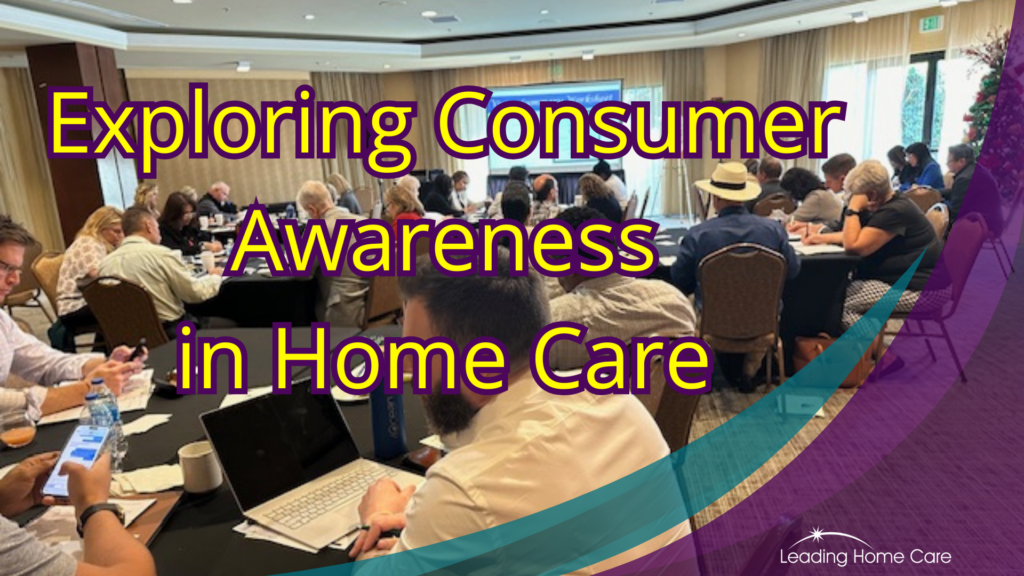By Stephen Tweed
Several years ago we were preparing for a workshop on “Selling Home Care to Physicians”. My wife, Elizabeth Jeffries, RN, is a relationship strategist and she was presenting a portion of the workshop on building relationships with physicians. A week or so before the program she was in the office of our friend who is a Podiatric Surgeon. She asked Dr. Levine how he selects a home health agency for a patient after foot surgery. His response: “I don’t know. You’ll have to ask Margie.”
“Who’s Margie?”
“She’s my office assistant.”
So Elizabeth introduced herself to Margie and asked her how she selects a home health agency. She thought about it a moment and gave the answer:
“Whoever was in here last and who do I like.”
That’s what our friend and colleague, Harry Beckwith, author of Selling the Invisible, calls the Recency Effect. The last one in the door gets the business.
So there are two profound lessons for you as a sales person. Make many more calls, and be very likeable. Being likeable is about developing rapport with the referral source.
Rapport is a harmonious relationship based on comfort, trust, and respect. We’re convinced from our research that rapport is 90% of the home care sale. When you are able to develop rapport with a client, family member, or referral source, you stand a pretty good chance of closing the sale. When you cannot develop rapport, there’s a good chance you won’t get the business.
Our friend and professional speaking colleague, Joe Bonura, taught us there are Three Sells to Every Sale
- First you sell yourself
- Then you sell your company
- Finally you sell your product or service
You sell yourself by asking questions and by showing an interest in the other person. People like you because of the way you make them feel about themselves.
Scott McKain has spent his career studying the importance of relationships and emotional connection in business. In his best-selling book, All Business is Show Business, Scott says, “The critical element in persuasion is the emotional connection between the persuader and the persuadee.”
Jeffrey Gitomer, Author of The Little Red Book of Sales, talks about the importance of friendship in selling. He says “It’s estimated that 50% of sales are made because of friendship. There’s another huge bonus to being friends – competition is virtually eliminated. Your fiercest competitor can’t blast you away from a customer who is a friend.”
Four Levels of Rapport
There are four levels of rapport you need to be thinking about as you begin your sales call:
- Common interests – You ask questions and observe your prospect and learn about some interest the person has that you have in common.
- Common language – You listen to the prospect and learn to adapt your message to use language that is similar to the language used by the prospect.
- Common behavior – You observe the behavior of the prospect, and adopt similar behavior. If the prospect sits, you sit. If they remain standing you remain standing. If the person is drinking coffee and offers you coffee, accept it.
- Common values – The most significant area of commonality between you and your prospective customer is values. As you enter into more in-depth conversation with the prospect you will learn about what they believe and what is important to them. When you recognize that you share beliefs and values in common, you have a tremendous opportunity to develop long lasting rapport.
The Third Secret
“People Do Business with People They Like” is the third secret in our Six Secrets of Selling Private Duty Home Care. This new eBook from Leading Home Care is packed with ideas and insights on how you can be liked by more of your clients, customers, and referral sources. Here are some other words of wisdom about developing relationships from several of our speaking colleagues:
- “Discover what the other person cares passionately about and learn from him or her. Most people are delighted to teach something about their passion.” Jerry Acuff
- “People love to talk about themselves. Ask the right question and it’s tough to shut them up.” Jeffrey Gitomer
- “People will teach you how to deal with them if you pay attention to the messages they are sending.” Jim Cathcart
- “Customers don’t care about you. The only thing they care about is themselves and their problem. You are there by invitation only. You must concentrate on the customer. Do not talk about yourself; rather ask probing, preplanned questions.” Jeffrey Fox
For more strategies and insights on how your can grow your home care business,
order your copy today of
Six Secrets to Selling Private Duty Home Care,
by Stephen Tweed.






